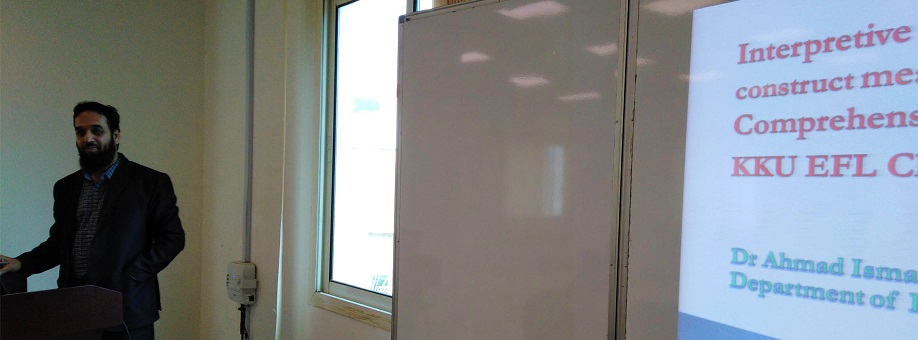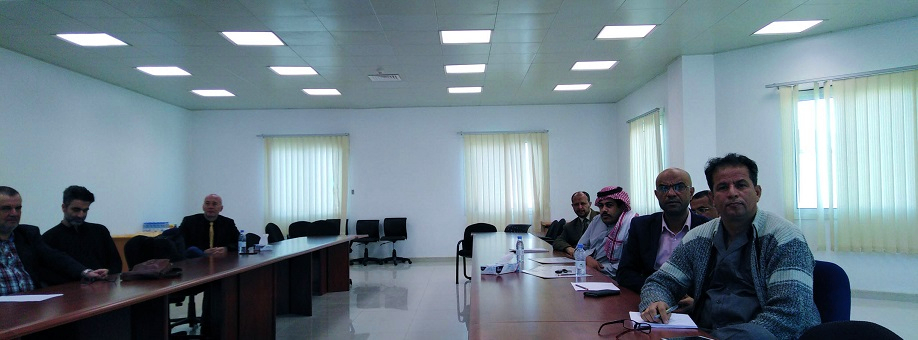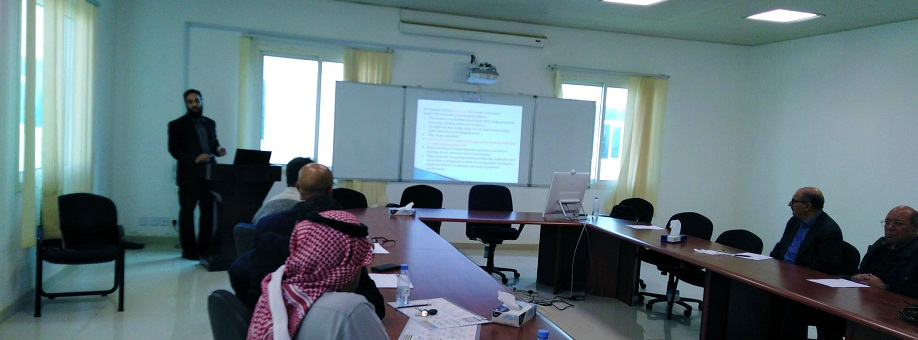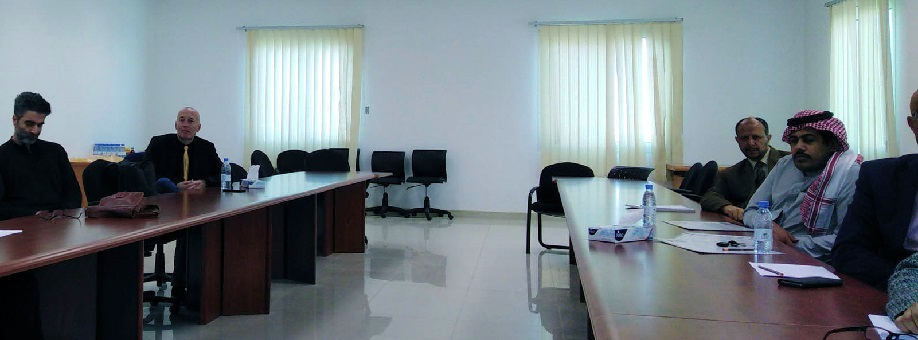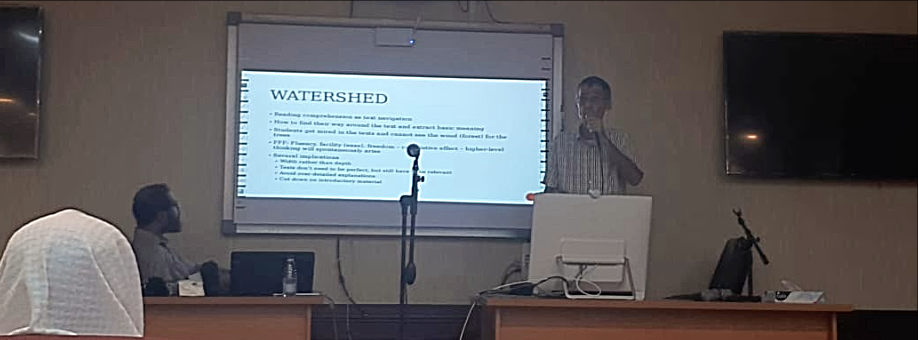Dr. Abdulkhaleq Al-Qahtani Shares Sabbatical Leave Research Experience
Dr. Abdulkhaleq Al-Qahtani, associate professor of the Department of English at the Faculty of Languages and Translation, presented a paper titled "Reading comprehension and strategies of Saudi Arabian learners in two learning contexts: EFL vs. ESL" at a webinar hosted by Department of English Chair, Dr. Munassir Alhamami, on April 8, 2021. As a visiting professor for the University of Southern Indiana on sabbatical leave from King Khalid University, Dr. Al-Qahtani obtained data from five different universities across the Midwestern United States, a region that contains the largest population of Saudi students.
In this talk, Dr. Al-Qahtani presented evidence of a significant difference between EFL and ESL students in the strategies they use. ESL students were found to favor Global Reading Strategies (GLOB), which can be explained as universal techniques that we all use when reading. Dr. Al-Qahtani noted that he used the Survey of Reading Strategies (SORS) instrument developed by Kouider Mokhtari and Ravi Sheorey in 2002. SORS measures three categories of reading strategies, namely global reading strategies, problem solving strategies, and support strategies. At the macro level, Dr. Al-Qahtani highlighted that the findings of the 141 participants in his study indicate a predominant use of problem solving strategies, followed by global strategies, and support strategies.
"Saudi Arabia is traditionally an EFL context. Students usually have friends around the globe and use English as their preferred language of communication. English is no longer limited to the classroom," he said. Dr. Al-Qahtani then went on to mention that although the USA was traditionally a pure ESL context, that is no longer the case for many Saudi students, who through technology, communicate with friends and family in Saudi Arabia as if they were face to face. This observation, he noted, supports the notion that the ESL learning environment does not always lead to better acquisition of the target language in comparison to the EFL context.
Dr. Al-Qahtani informed the audience that his paper is accepted for publication in the near future, and he looks forward to collegial dialogue on the implications of his study and the potential for further research.
Date: 4/12/2021
Source: Faculty of Languages and Translation

